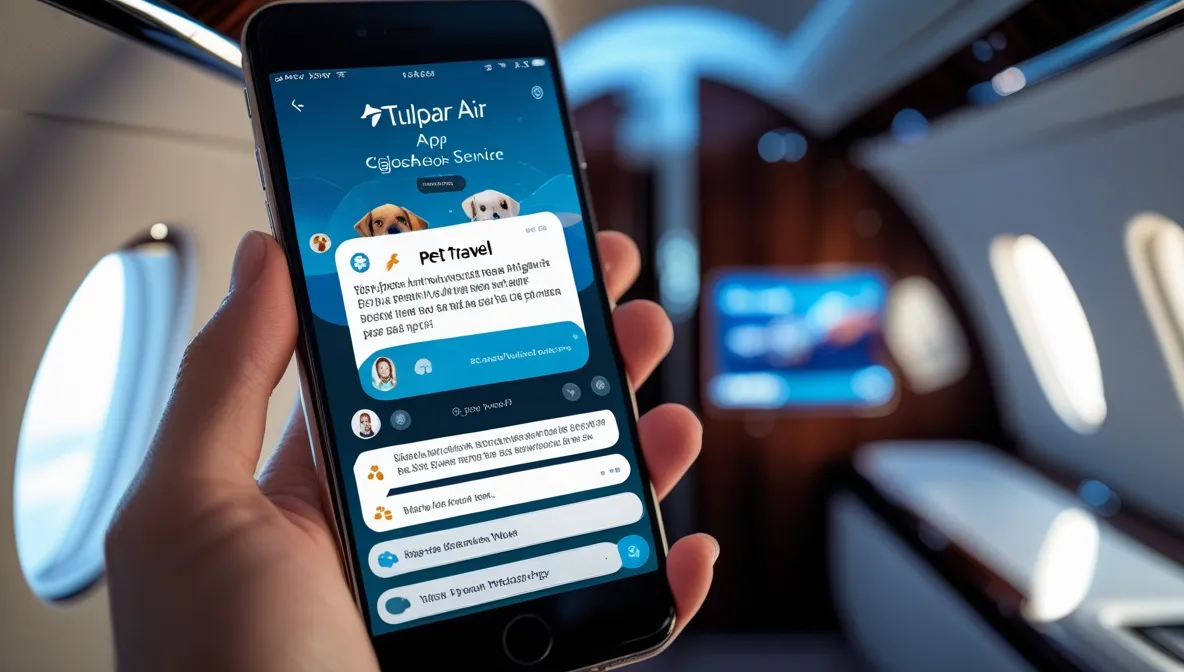GigaChat Rises Into the Sky
The rollout of a GigaChat‑based AI assistant in the Tulpar Aero mobile app signals how Russian-built digital platforms are advancing toward large‑scale use in transportation and logistics.

A chatbot that understands the passenger
In early November, Sberbank integrated a customized AI assistant into the mobile app of Tulpar Group, a company specializing in business aviation services. The 24/7 digital assistant responds to the most common passenger questions in 5 to 30 seconds. Sber plans to expand the tool substantially: the system will recommend optimal flights based on itineraries, group size, and personal preferences, and will send alerts about promotional offers, including special Empty Legs fares.
For Russia’s IT industry and national economy, the project represents more than a pilot. It demonstrates that a major domestic financial institution is not only deploying foreign AI technologies but is actively building its own platform for commercial use in high‑end services. For passengers, this means faster access to information, more streamlined service, and a more personalized experience.

Scaling a successful model
The Russian case involving Sber and Tulpar highlights two parallel avenues for development. First, GigaChat and similar domestic AI systems are becoming export-ready products. With adaptation for foreign airlines, tourism services, and logistics operators—particularly in the CIS, the Global South, the Middle East, and Africa, where English-language tools often require Russian localization—the potential demand is significant. Strategic partnerships with international carriers that serve a large Russian‑speaking customer base may become a priority for tech exporters.
Second, inside Russia, the project is accelerating the adoption of AI assistants across all passenger transport sectors. Having proved itself in the premium business aviation segment, the solution is positioned for deployment in commercial aviation, rail transport, bus networks, booking systems, logistics platforms, and hospitality services. Scaling these technologies will “intellectualize” the interaction between clients and service providers, forming a nationwide smart‑service infrastructure.
The evolution of AI assistants
Russia’s adoption of generative artificial intelligence in transportation has advanced rapidly. As early as 2024, Aeroflot—Russia’s national carrier—launched its own generative‑AI‑based chatbot for passenger services, signaling that even high‑volume civil aviation recognized the need for AI tools.
In 2025, Russian Railways (RZD) took an even larger step by introducing a digital assistant named Max for passengers and system users. Given RZD’s scale and the enormous number of annual travelers, this marks the transition of AI assistants from pilot projects to a national transportation standard.

Globally, similar trends are emerging. International airlines are rolling out their own AI assistants built on large language models. The Tulpar–Sber case is therefore both a logical extension of the global trend and a demonstration that Russian tech companies can deliver solutions on par with leading international platforms.
A digital transport future
The Sber–Tulpar project signals that Russia’s major corporate players possess both the competence and the motivation to scale AI-driven service technologies. By 2030, AI assistants are expected to become standard not only in business aviation but also in commercial aviation, rail transport, bus systems, taxi platforms, and other passenger services.
Internationally, Russian platforms—including GigaChat and similar tools—will be positioned to offer their solutions to the CIS, the Middle East, African countries, and other markets where Russian‑language localization and tailored functionality create added value.

Domestically, the trend toward smart service in transport and logistics will intensify. AI assistants are expected to integrate automated booking based on user preferences, dynamic pricing, personalized recommendations, and synchronization with ecosystems of banks, hotels, and transfer services. Such ecosystem‑level tools will become competitive advantages in Russia’s service economy.
The project demonstrates that Russia’s IT sector has matured enough to develop and commercialize generative‑AI solutions comparable in functionality to Western systems. For the national economy, such examples mark progress toward technological sovereignty in one of the defining domains of the 21st century.










































